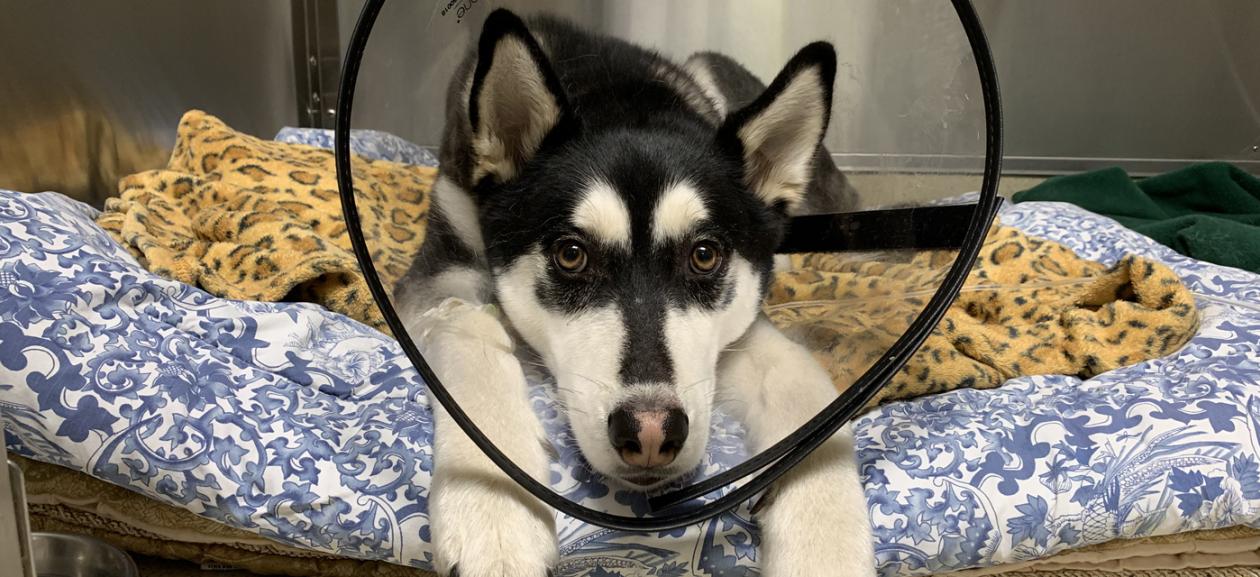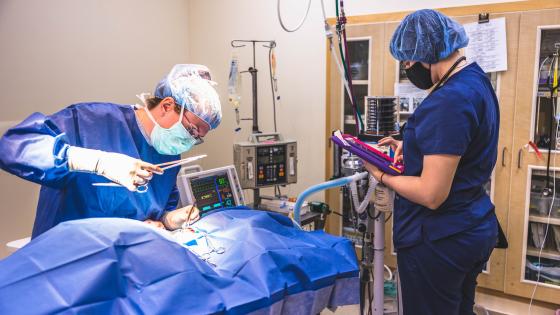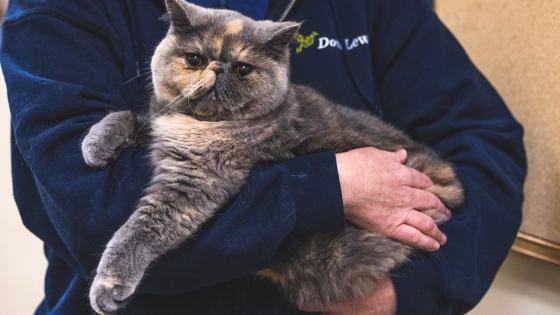
To Wait or Not to Wait?
If you notice something different about your pet, you may start to wonder if it’s time to make a trip to the emergency room or if you’re just overreacting to your pet’s possible plight. Since our pets can’t speak to us, it’s our responsibility as owners to determine if and when they need immediate medical attention.
Here are a few examples of when you should take immediate action and when you can wait. However, if you ever have doubts, don’t hesitate to call your regular veterinarian or DoveLewis.
Your pet vomited.
We get it, vomit is gross. But it’s not uncommon for a pet to puke occasionally if you’ve introduced them to a new type of food, if they’ve chowed down on their food too quickly, or even if they get overexcited.
You should bring your pet to the vet if they vomit continuously. But, if it’s an one-time occurrence, you can most likely wait it out and closely monitor them over the next 24 to 48 hours.
Your pet is trying to vomit, but can’t.
Pets usually vomit to expel something from their system. So if a pet is unable to vomit on their own, they likely need to visit the ER to potentially have an object extracted. Another reason pets may also have difficulty vomiting is when they are bloated, which is another reason to visit a veterinary doctor right away.
Your pet has ingested a “no-no” food or decided to snack on the un-snackable.
Many foods that are perfectly safe for humans to eat, like chocolate, grapes or raisins, are poisonous to our animal friends. Even many plants can cause harm to an animal (like lilies can for cats). And we think it goes without saying that ingesting a non-food item can be highly dangerous to our animal friends. We've seen pets eat everything from chicken bones to socks, marijuana to rat poison, and more. In any of these situations, immediate medical treatment is required. The vet will either treat the food toxicity or safely remove the foreign object from your pet.
And we don’t recommend taking treatment into your own hands with at-home remedies. Often times, those can go wrong causing even more injuries to your animal.
You’ve noticed an abrupt, unexplained change in behavior.
It’s normal for animals to act differently in a new environment or around new people or animals. However, if your pet’s behavior has changed dramatically out of the blue, it may be their way of telling you something is wrong and they need help. Depending on the type and severity of their behavioral changes, you may decide that you have time to schedule an appointment with your regular vet instead of visiting the emergency room. You are the best person to make that judgement since you know your pet the best. However, if your pet is acting strangely and making a lot of noise (like yelping), that could mean your pet is suffering from a traumatic injury and you should see a veterinarian immediately.
Your pet isn’t urinating or there is blood in the urine.
Healthy cats and dogs should urinate regularly. The inability to urinate or urinating blood is a sign your pet may have a urinary tract infection or another serious problem like a blockage in the bladder. Both of these issues are very serious, and require immediate treatment.
Your pet has diarrhea.
In general, it’s okay to wait for about 24 hours to see a vet if your pet is experiencing diarrhea. Give them a bland diet, limit their food and monitor them closely over the next day. If the diarrhea continues for multiple days, it’s time to go to the vet.
Your pet was hit by a car or fell from a high area, but appears to be fine.
Adrenaline often kicks in and gives animals an extra burst of energy after an accident. Usually we can’t see bruising, broken bones or internal bleeding that can occur after a car accident or traumatic incident without a veterinary exam. Even though your pet may be bouncing off the walls, they could still be in serious pain. Do not wait to seek medical attention.
At the end of the day, you know your pet better than anyone. If you feel uncomfortable waiting in any situation, it’s always okay to call or visit the emergency room to get things checked out. DoveLewis is open 24/7, so your pet has care available at all hours in case of an emergency. Call us at 503-228-7281 or drop by at any time.
Blog written by Erin Bothwell.




